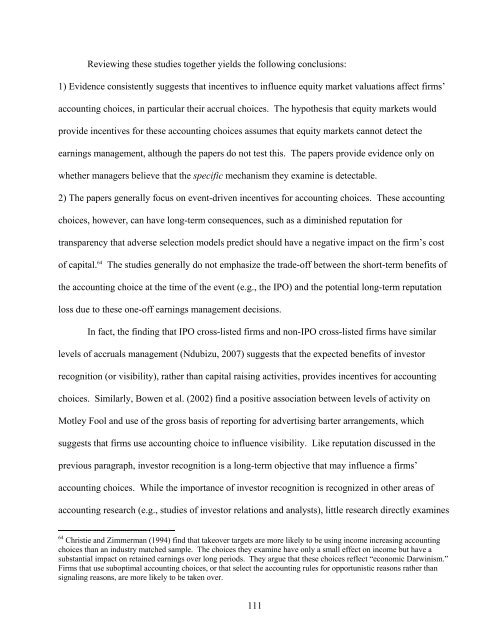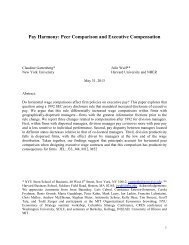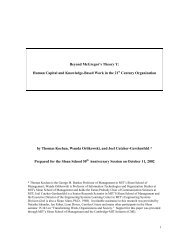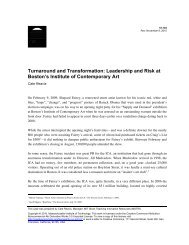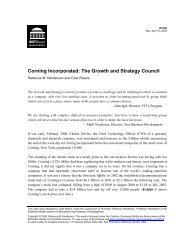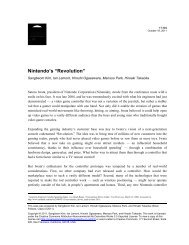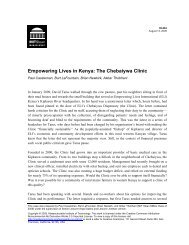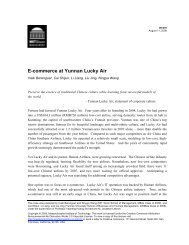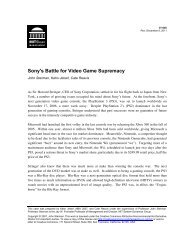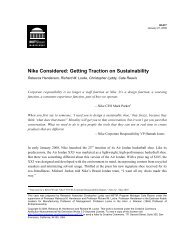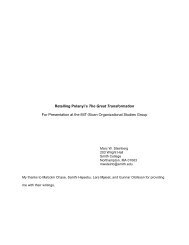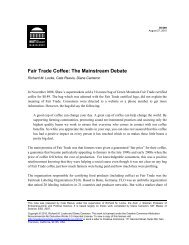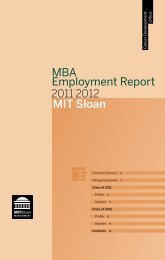Understanding earnings quality - MIT Sloan School of Management
Understanding earnings quality - MIT Sloan School of Management
Understanding earnings quality - MIT Sloan School of Management
Create successful ePaper yourself
Turn your PDF publications into a flip-book with our unique Google optimized e-Paper software.
Reviewing these studies together yields the following conclusions:<br />
1) Evidence consistently suggests that incentives to influence equity market valuations affect firms’<br />
accounting choices, in particular their accrual choices. The hypothesis that equity markets would<br />
provide incentives for these accounting choices assumes that equity markets cannot detect the<br />
<strong>earnings</strong> management, although the papers do not test this. The papers provide evidence only on<br />
whether managers believe that the specific mechanism they examine is detectable.<br />
2) The papers generally focus on event-driven incentives for accounting choices. These accounting<br />
choices, however, can have long-term consequences, such as a diminished reputation for<br />
transparency that adverse selection models predict should have a negative impact on the firm’s cost<br />
<strong>of</strong> capital. 64 The studies generally do not emphasize the trade-<strong>of</strong>f between the short-term benefits <strong>of</strong><br />
the accounting choice at the time <strong>of</strong> the event (e.g., the IPO) and the potential long-term reputation<br />
loss due to these one-<strong>of</strong>f <strong>earnings</strong> management decisions.<br />
In fact, the finding that IPO cross-listed firms and non-IPO cross-listed firms have similar<br />
levels <strong>of</strong> accruals management (Ndubizu, 2007) suggests that the expected benefits <strong>of</strong> investor<br />
recognition (or visibility), rather than capital raising activities, provides incentives for accounting<br />
choices. Similarly, Bowen et al. (2002) find a positive association between levels <strong>of</strong> activity on<br />
Motley Fool and use <strong>of</strong> the gross basis <strong>of</strong> reporting for advertising barter arrangements, which<br />
suggests that firms use accounting choice to influence visibility. Like reputation discussed in the<br />
previous paragraph, investor recognition is a long-term objective that may influence a firms’<br />
accounting choices. While the importance <strong>of</strong> investor recognition is recognized in other areas <strong>of</strong><br />
accounting research (e.g., studies <strong>of</strong> investor relations and analysts), little research directly examines<br />
64 Christie and Zimmerman (1994) find that takeover targets are more likely to be using income increasing accounting<br />
choices than an industry matched sample. The choices they examine have only a small effect on income but have a<br />
substantial impact on retained <strong>earnings</strong> over long periods. They argue that these choices reflect “economic Darwinism.”<br />
Firms that use suboptimal accounting choices, or that select the accounting rules for opportunistic reasons rather than<br />
signaling reasons, are more likely to be taken over.<br />
111


